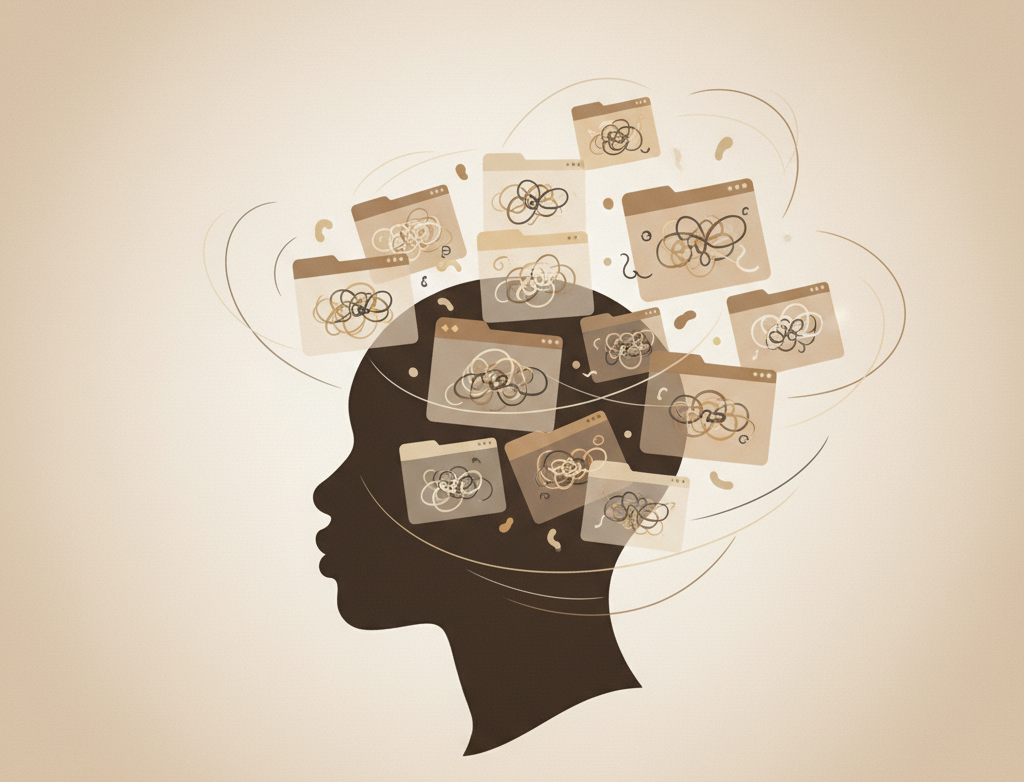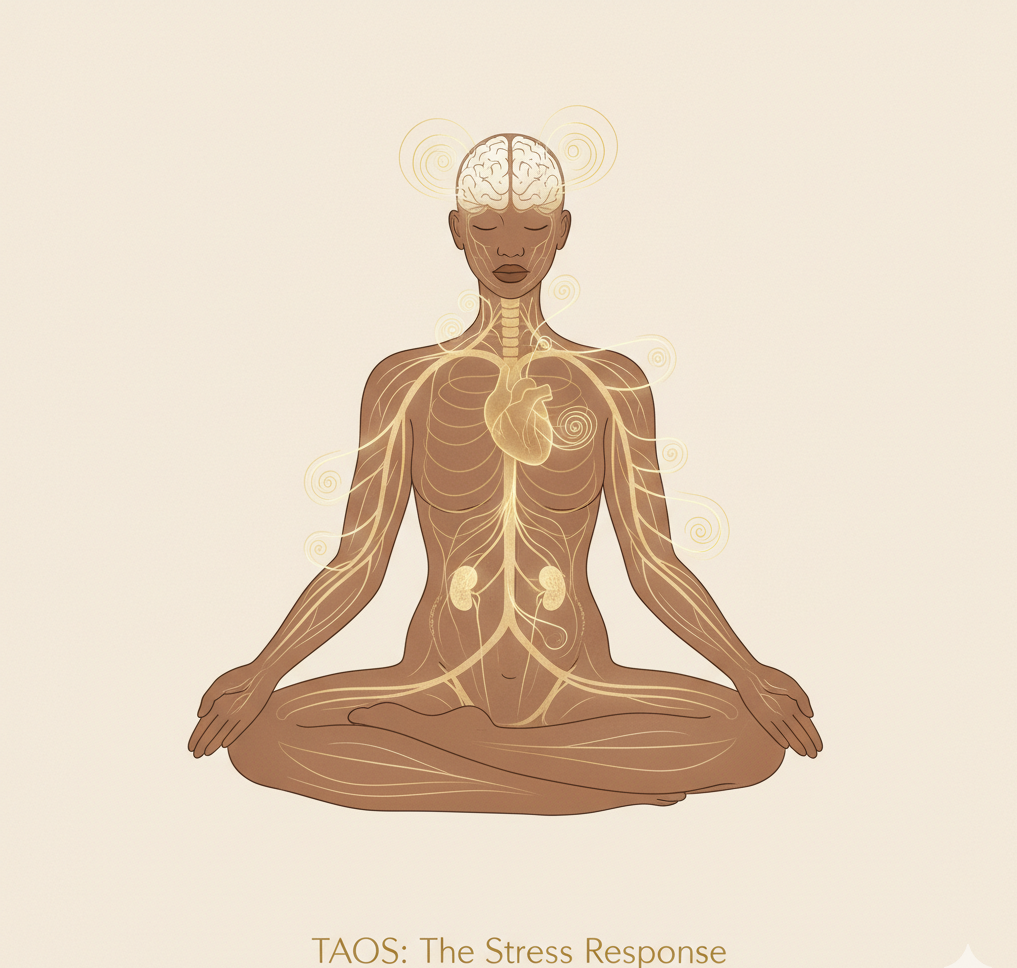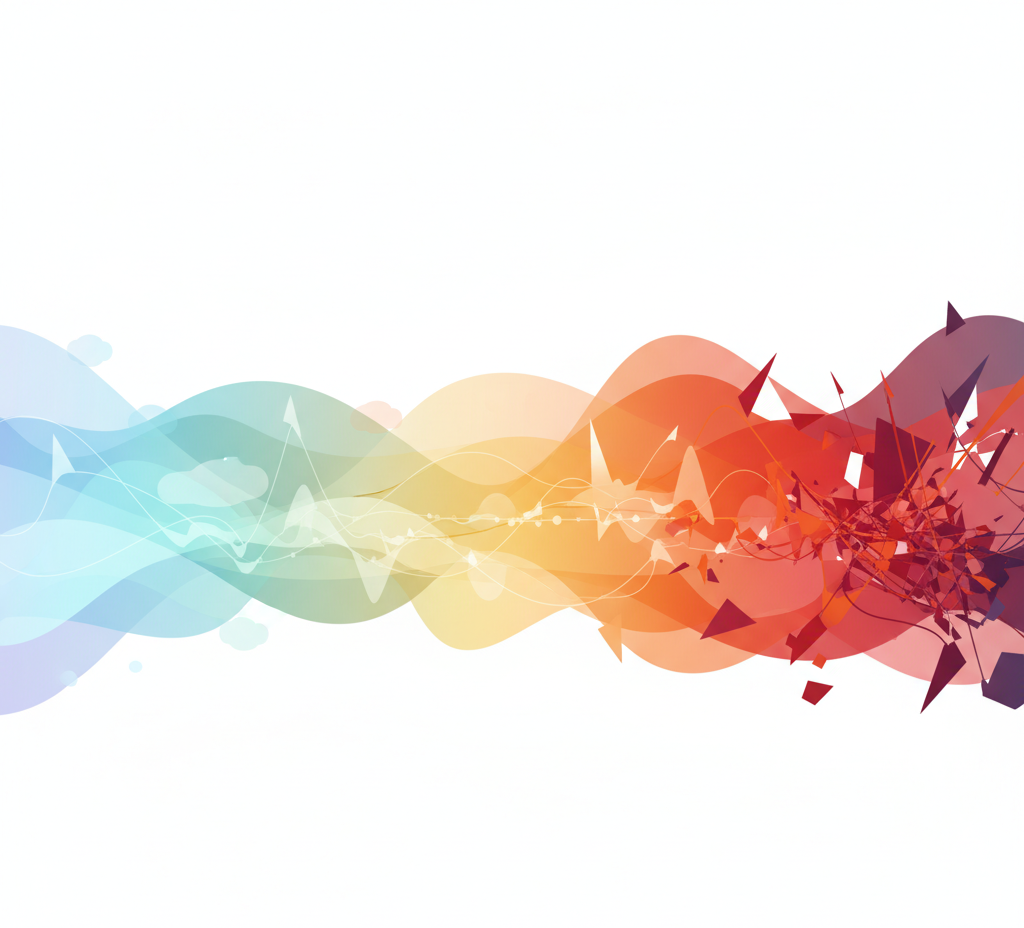
“Beware the barrenness of a busy life.” — Socrates
There are days when you wake up already tired.
Not because your body didn’t rest — but because your mind never stopped running.
That quiet exhaustion you can’t stretch away?
That’s overwhelm.
It’s not weakness.
It’s a signal —
A gentle alarm from your inner world saying,
“You’ve been carrying too much for too long.”
What Overwhelm Really Is

Overwhelm happens when the weight of life grows louder than your capacity to hold it.
Your thoughts multiply faster than your breath can catch them.
Your heart and mind begin to work overtime , trying to process what feels like too many tabs open in your inner browser.
A short wave of overwhelm can push you to act.
But living there too long drains your energy, blurs your focus, and steals your peace.
How Your Body and Mind Respond

When you’re overwhelmed, your body moves into high alert.
Cortisol and adrenaline flood your system.
Your heart beats faster, your breathing shortens, your muscles tighten — preparing you to “fix” everything at once.
Your mind races too.
You forget what matters most.
You freeze — not because you’re lazy, but because your brain is overloaded.
The truth is: your nervous system isn’t your enemy.
It’s trying to protect you.
But without moments of recovery, that protection becomes pressure.
Measuring Overwhelm (and Listening to the Signals)

Wearables and wellness tools can track overwhelm through your heart rate, sleep patterns, and focus levels —
but your body already knows.
Listen to the cues it gives you daily.
You scroll instead of breathe.
You wake up feeling behind.
These are not flaws — they’re invitations.
Each one whispers:
“Slow down. Your soul is asking for space.”
Understanding Overwhelm Levels

State | What It Feels Like
-
Calm: You feel grounded and clear. Tasks flow; your mind feels steady
-
Mild: You sense pressure creeping in but can still self-correct with rest or breath
-
Moderate: Your focus blurs. You forget simple things and crave escape
-
High: You shut down, avoid decisions, or cry easily. Your body feels heavy, your mind foggy
Remember — even a strong soul can short-circuit. Awareness is not weakness; it’s wisdom
When Overwhelm Hits: Gentle Grounding Practices

Managing overwhelm isn’t about controlling everything — it’s about creating rhythm.
Try a few small anchors to help your nervous system breathe again:
-
Pause for 60 seconds: Close your eyes, drop your shoulders, exhale slowly
-
Do one thing at a time: Multitasking feeds chaos; focus feeds calm
-
Move your body gently: A short walk or stretch resets your chemistry
-
Say no without guilt: Protecting your peace is productive
-
Journal your triggers: Awareness turns chaos into clarity
Overwhelm shrinks when you start responding from calm instead of reacting from fear.
Your Invitation Back to Stillness

Take one slow breath right now.
Notice your body — your heartbeat, your inhale, your exhale.
You are not behind.
You are simply being asked to return.
Peace isn’t something you chase; it’s something you allow.
And every time you pause, you’re already halfway home.
“What’s one thing I can release today that will make space for peace?”
Save this post for the days your soul feels heavy.
To take the overwhelm quiz use this link
The Overwhelm Quiz ScoreShare it with someone who might need permission to slow down.
And if you’re ready to turn awareness into alignment —
Join The Align Circle for weekly reflections and soul resets
